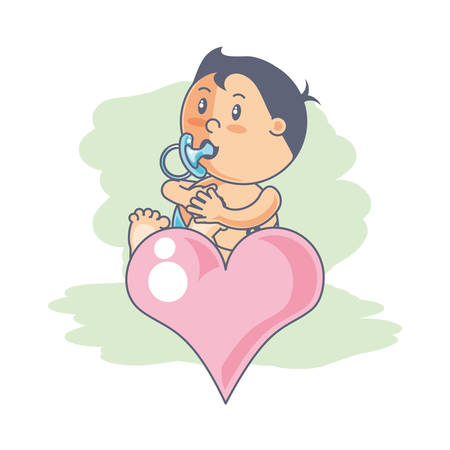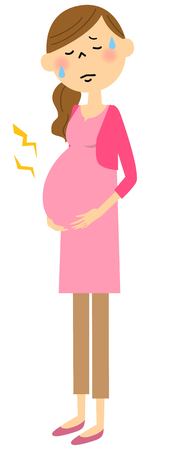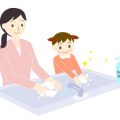Understanding Your Real Needs
When preparing for a new arrival, it’s easy to feel overwhelmed by the sheer volume of baby products on offer. However, cutting costs without compromising on your baby’s wellbeing starts with focusing on what is genuinely essential. According to UK parenting norms and advice from the NHS, many items marketed to new parents are “nice-to-haves” rather than necessities. Making clear distinctions between these two categories can help you avoid unnecessary spending while ensuring your baby’s comfort and safety.
| Essentials (Must-Haves) | Nice-to-Haves |
|---|---|
| Cot or Moses basket | Bottle warmer |
| Maternity pads and nappies | Nappy disposal system |
| Clothing (vests, babygrows) | Designer outfits |
| Car seat (for travel safety) | Travel system pram |
| Bedding and blankets | Nursing pillow |
The NHS recommends prioritising safety and basic comfort over aesthetic features or convenience gadgets. For example, while a baby monitor can offer peace of mind, in a typical UK home where bedrooms are close together, it might not be necessary straight away. Similarly, although high-tech pushchairs may look appealing, a sturdy second-hand pram often suffices for early months.
By understanding which items are truly necessary, you can build a practical shopping list that respects both your budget and your baby’s needs. This approach ensures you’re making informed decisions rooted in local advice—helping you prepare confidently for your growing family without overspending.
Budgeting for Your Baby
Preparing financially for a new arrival is crucial, and setting a realistic budget can help you cut costs without compromising your baby’s wellbeing. Start by listing all anticipated expenses, dividing them into one-off purchases—like a cot or pram—and ongoing costs, such as nappies and formula. It’s wise to research average prices in the UK and consider second-hand options from trusted sources to save money safely.
Understanding Your Expenses
| Expense Type | Examples | Frequency |
|---|---|---|
| One-Off | Cot, car seat, pushchair, baby monitor | Once (before birth or early months) |
| Ongoing | Nappies, wipes, formula/milk, clothing, toiletries | Monthly/Weekly |
Exploring UK-Specific Support
The UK offers several forms of financial support for new parents. For instance, Child Benefit is available to most families and can provide essential monthly income. Additionally, if you are on a low income or receive certain benefits, you may qualify for the Sure Start Maternity Grant, a one-off payment to help with the costs of having a baby. Check eligibility criteria on the official GOV.UK website and apply early to ensure you don’t miss out.
Quick Reference: Key UK Benefits for New Parents
| Benefit Name | Description | How to Apply |
|---|---|---|
| Child Benefit | Tax-free monthly payment per child to help with costs of raising children. | Apply via HMRC after your baby is registered. |
| Sure Start Maternity Grant | A one-off £500 payment for eligible low-income families expecting their first child. | Apply through Jobcentre Plus; check eligibility on GOV.UK. |
Practical Tip:
Create a spreadsheet or use budgeting apps tailored to UK users to track your spending and spot areas where you can economise safely—for example, borrowing seldom-used items or joining local parenting groups for support and advice.

3. Second-hand and Hand-me-downs: Saving the Smart Way
Preparing for a baby in the UK doesn’t mean you have to buy everything brand new. Embracing second-hand and hand-me-down items can dramatically cut costs without compromising on quality or safety. Across Britain, there are plenty of excellent sources for high-quality pre-loved baby essentials, such as local charity shops, Facebook Marketplace, and NCT Nearly New Sales. These options not only help your budget but also support sustainability by reducing waste.
Where to Find Quality Second-hand Baby Items
| Source | Description | Benefits |
|---|---|---|
| Charity Shops | Shops like British Heart Foundation, Oxfam, or local hospice charities often stock gently-used baby clothes, toys, and sometimes furniture. | Affordable prices, supports charitable causes, available on most high streets. |
| Facebook Marketplace | An online community platform where local parents sell or give away baby equipment and clothing. | Bargain deals, easy to search locally, negotiate directly with sellers. |
| NCT Nearly New Sales | Organised by the National Childbirth Trust (NCT), these events offer vetted pre-owned baby gear from other parents. | Quality-checked items, trusted community, great for larger purchases like prams and cots. |
Safety First: UK Standards to Consider
While second-hand shopping is budget-friendly, it’s crucial to ensure every item meets current UK safety standards. Here are a few essential tips:
- Cots and Mattresses: Make sure the cot adheres to British Standard BS EN 716. Always buy a new mattress for hygiene and safety.
- Car Seats: Only consider car seats if you are absolutely certain of their history—never use one that’s been in an accident. Look for labels indicating compliance with ECE R44/04 or R129 (i-Size) regulations.
- Toys: Check for the CE mark or UKCA marking, ensuring they meet British toy safety standards.
- Prams and Pushchairs: Verify that they conform to BS EN 1888 standards. Inspect brakes and harnesses carefully before purchase.
The Value of Hand-me-downs from Family and Friends
If you’re fortunate enough to have friends or relatives offering hand-me-downs, this can be another excellent way to save. Many baby clothes and accessories are outgrown quickly and still in pristine condition. However, apply the same safety checks as you would with any second-hand find—especially for sleep products and feeding equipment.
Avoiding Common Pitfalls
Not everything is safe or sensible to buy used. For example, avoid second-hand breast pumps (unless closed-system), mattresses (always buy new), and any item that looks worn out or has missing parts. By being selective about what you accept or purchase second-hand, you can strike the perfect balance between affordability and your baby’s wellbeing.
4. DIY and Borrowing from Local Networks
Preparing for a baby in the UK doesn’t have to mean purchasing everything brand new. Embracing a do-it-yourself (DIY) approach and tapping into local community resources can significantly reduce costs while ensuring your child has all they need. Many British families now turn to community lending libraries, baby equipment rental services, and parent networks as practical, low-cost alternatives to traditional shopping.
Community Lending Libraries
Local community libraries are not just for books—many offer toys, baby clothes, and essential equipment on loan. These libraries are typically run by councils or volunteer groups, making them both reliable and accessible. Membership is often free or available for a small annual fee, allowing you to borrow items like cots, prams, and highchairs without a hefty outlay.
Baby Equipment Rental Services
If you prefer professional-grade gear or need something for a short period—like a car seat for travel—baby equipment rental services provide safe, clean items at a fraction of retail prices. This is especially useful for first-time parents who want to trial different products before buying or those with limited storage space.
| Service Type | Typical Items Available | Cost Range (per month) | Key Benefits |
|---|---|---|---|
| Community Library | Toys, books, baby clothes | Free–£5 membership | Saves money and storage space |
| Equipment Rental | Cots, prams, car seats, sterilisers | £10–£30 | Access to quality brands; try before buying |
| Parent Network Borrowing | Maternity wear, slings, monitors | No cost or nominal contribution | Trusted sources; peer advice included |
Parent Networks and Social Groups
The UK boasts a strong culture of community support through parent networks such as NCT (National Childbirth Trust) and local Facebook groups. These groups frequently organise clothing swaps, toy exchanges, and lend out baby essentials. Not only do you save money, but you also gain access to invaluable advice from experienced parents who understand your local area’s unique needs.
Safety First: What to Check When Borrowing or Renting Baby Gear
- Check Safety Standards: Ensure any borrowed or rented item meets current UK safety regulations (look for the CE or UKCA mark).
- Inspect Condition: Examine all items for damage or excessive wear before use.
- Cleanliness: Clean borrowed items thoroughly; most reputable services sanitise equipment between uses.
- Avoid Outdated Items: Avoid borrowing older car seats or cots that may no longer be considered safe under updated guidelines.
The Takeaway
Tapping into local networks and making use of shared resources is an excellent way for UK parents-to-be to cut costs without compromising on safety or quality. Not only does this foster community spirit, but it also ensures you can access what you need when you need it—leaving more room in your budget for the things that matter most.
5. Healthcare and Free Local Services
One of the greatest advantages of having a baby in the UK is access to the National Health Service (NHS), which provides comprehensive maternity care and essential vaccinations at no direct cost. Take full advantage of NHS services, including regular check-ups, scans, and postnatal care. Not only does this ensure your health and your babys wellbeing, but it also saves significant expenses compared to private healthcare.
Key NHS Maternity Services
| Service | Details |
|---|---|
| Antenatal Appointments | Regular check-ups with midwives or doctors, usually at your local surgery or hospital |
| Ultrasound Scans | Standard scans offered free at 12 and 20 weeks to monitor development |
| Maternity Prescriptions | Free prescriptions and dental care during pregnancy and for one year after birth with a valid maternity exemption certificate (MatEx) |
| Immunisations | Recommended vaccines for both mother (such as flu and whooping cough) and baby provided at no cost |
Utilise Free Support from Councils and Children’s Centres
Your local council and children’s centres offer a variety of free services that can help you prepare for parenthood without stretching your budget. These include antenatal classes covering everything from childbirth preparation to practical parenting tips, as well as baby groups where you can meet other parents, share experiences, and access expert advice.
Examples of Free Local Support Services
- Antenatal Classes: Covering labour, breastfeeding, newborn care, and more—often available through NHS hospitals or children’s centres.
- Parent & Baby Groups: Social sessions where you can connect with others in your area for support and friendship.
- Health Visitor Drop-ins: Regular sessions for weighing your baby, asking questions, and accessing advice on child development.
How to Find Local Services
Visit your local council website or NHS directory to locate nearby children’s centres or family hubs. These resources are invaluable for new parents looking to save money while ensuring they get the best start for their family. By making the most of these free healthcare options and local services, you can cut costs without compromising on quality care or support.
6. Avoiding Common Pitfalls
When preparing for your baby’s arrival, it’s easy to get swept up by persuasive marketing and end up spending on items you don’t truly need. UK retailers often promote must-have gadgets and luxury nursery gear, but staying vigilant can save you hundreds of pounds while keeping your baby safe and comfortable.
Spotting Unnecessary Purchases
Many products are marketed as essential, yet in reality, are rarely used or easily substituted. Take a look at the table below for common examples:
| Item | Marketing Claim | Practical Alternative |
|---|---|---|
| Nappy Bins | Odour control “necessity” | Standard bin with frequent emptying |
| Bottle Warmers | Faster feeding times | Bowl of warm water |
| Nursing Pillows | “Essential” for feeding comfort | Regular cushions or pillows |
Understanding UK Safety Guidelines: What Should Be Bought New?
Certain items should always be purchased new due to strict safety regulations. Familiarise yourself with UK standards to avoid putting your baby at risk. Here are key items to buy new:
| Product | Reason to Buy New (UK Guidelines) |
|---|---|
| Moses Basket Mattress or Cot Mattress | Reduces risk of SIDS; ensures proper fit and hygiene |
| Car Seat | No guarantee of past accident history or hidden damage if second-hand |
Top Tips to Avoid Overspending
- Stick to a shopping list based on NHS and Which? Baby essentials recommendations.
- Avoid bulk buying newborn sizes—babies grow fast!
- Join local parenting groups for advice on what you’ll actually use day-to-day.
- Resist last-minute impulse buys; sleep on non-urgent purchases.
Your Peace of Mind Matters Most
By focusing on what’s truly necessary, guided by reliable UK resources, you’ll keep costs down without compromising your baby’s safety or comfort. Remember: being a savvy shopper is just another way to protect your growing family.


